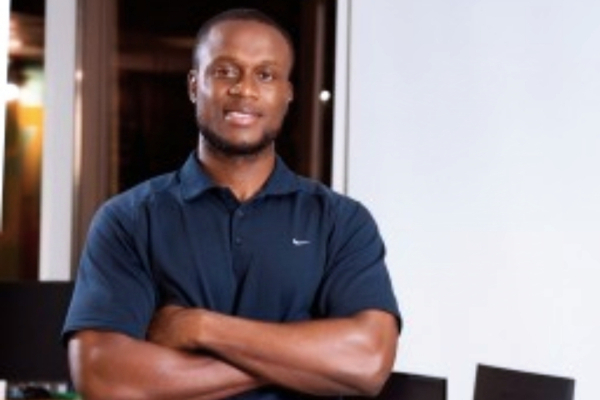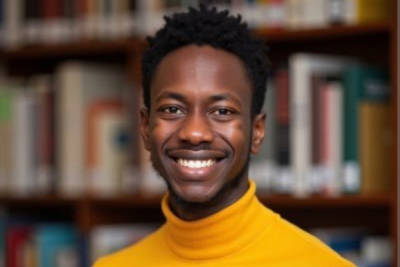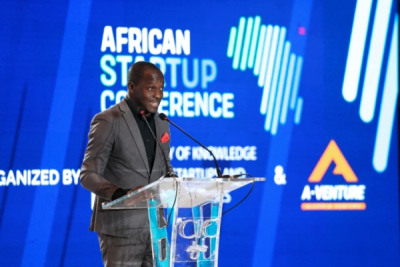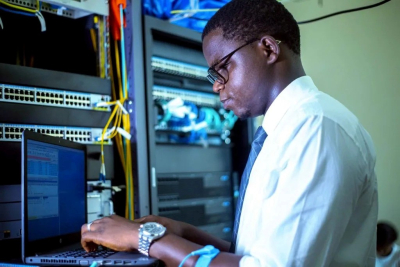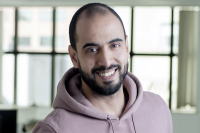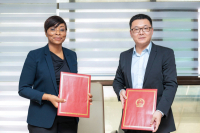To help young Moroccans, both graduates and non-graduates, find employment, a tech entrepreneur has developed a tailored solution.
JobUp, a digital solution developed by a Moroccan startup, allows users to easily find service providers for everyday needs across the country.
Founded in 2020 by Mohamed Ennamli, JobUp was born out of the challenges faced by young graduates entering the job market during the COVID-19 pandemic. "JobUp is a career accelerator for young graduates seeking to enter the job market," Ennamli said. "With the lockdown and its impact on the job market, the application became a necessity, as it serves all job seekers and improves their financial situation."
The solution includes a mobile application available on both iOS and Android, which has been downloaded more than 100,000 times, according to Play Store data. Users create an account and set up their profiles within the app. Service seekers post ads with detailed descriptions of their needs, while interested providers apply. Users then select the provider that best suits their needs and budget, scheduling the service at the agreed-upon location, date, and price.
Service providers also create detailed profiles within the app, showcasing their expertise and services offered. The platform connects users with a wide range of professionals, including hairdressers, cooks, plumbers, masons, and housekeepers.
Since its launch, JobUp has attracted more than 10,000 profiles and over 15,000 users across more than 20 cities throughout Morocco.
By Adoni Conrad Quenum,
Editing by Sèna D. B. de Sodji
A civil engineer with over 7 years of experience in the United States, he also stands out as an entrepreneur. He develops financial solutions aimed at improving access to and the quality of healthcare in Africa.
Loubao Kraka is an Ivorian tech entrepreneur and the founder of EnvoyX, a startup providing insurance and payment services for healthcare providers in Africa.
Founded in 2023, EnvoyX specializes in payment processing for the healthcare sector. Leveraging artificial intelligence (AI), the company simplifies and accelerates the settlement of medical bills. It also facilitates reimbursement claims to insurers, enabling healthcare providers to receive payments for their services more quickly.
EnvoyX also stands out for its fraud detection capabilities. By identifying suspicious patterns and anomalies in claims, it helps reduce fraudulent activities, protect revenue streams, and strengthen the financial security of healthcare stakeholders.
Before founding EnvoyX, Loubao Kraka had already built a notable entrepreneurial career. In 2019, he co-founded Innovative Apollo Media, a U.S.-based company dedicated to supporting Black-owned businesses and young entrepreneurs in achieving their goals.
In 2020, he launched RaiseMeFunds, a crowdfunding platform for Africans. This initiative allows users to raise funds for significant events such as celebrations or graduations, as well as to cope with challenging situations like natural disasters or illnesses.
The Ivorian entrepreneur graduated from Harris-Stowe State University in the United States, where he earned a bachelor’s degree in mathematics in 2017. He also holds a bachelor’s degree in civil engineering, obtained in 2021 from Washington University in St. Louis.
His professional career began in 2017 at ABNA Corporation, a U.S.-based civil engineering firm, where he worked as a civil engineer. In 2018, he joined the Missouri Department of Transportation as a transportation engineering intern, serving as an ambassador for MassChallenge, an organization supporting start-ups and entrepreneurs. Between 2021 and 2023, he worked as a product manager at VISA, the multinational specializing in digital payments.
Melchior Koba
After earning his first university degree in Senegal, he pursued further studies in the Czech Republic, where he obtained a doctorate. He brings over seven years of experience to the table in the fields of data science, artificial intelligence, cloud computing, and automation.
Doudou Ba (photo) is a Senegalese data scientist, automation specialist, and tech entrepreneur. He is the founder and CEO of OneNine, a company established in 2023 that specializes in developing artificial intelligence (AI) solutions.
OneNine’s mission is to provide scalable AI and cloud technologies tailored to the commercial needs of its clients. Through its solutions, businesses can leverage smart automation and the opportunities offered by data analytics. OneNine also offers Microsoft-certified training and personalized AI support to prepare teams for the challenges of digital transformation. Its expertise spans the entire Microsoft Cloud Stack and comprehensive cloud architecture. To date, the company has successfully completed seven projects.
Doudou Ba also serves as a data scientist at A.P. Moller - Maersk in Sweden, a transport and logistics company with approximately 110,000 employees across 130 countries. His academic journey began at the University of Thiès in Senegal, where he earned a bachelor’s degree in hydraulic engineering in 2015. He continued his studies at the Czech University of Life Sciences in Prague, earning a master’s degree in environmental modeling in 2021. He then obtained a doctorate in machine learning and neurohydrology this year at Charles University in the Czech Republic. Currently, he is pursuing a master’s degree in software engineering at the Blekinge Institute of Technology in Sweden.
Before moving to the Czech Republic, Doudou Ba worked from 2016 to 2017 at Senegal’s Office des Forages Ruraux as an operations control officer. In Prague, he joined YUNGO, a telecom engineering company, in 2019 as a telecom engineer. In 2020, he joined Infosys, a consulting and digital services firm, where he held the position of process manager.
By Melchior Koba,
Editing by Sèna D. B. de Sodji
Artificial intelligence (AI) presents a significant opportunity to accelerate technological and economic development in Africa. Recognizing its immense potential, countries across the continent are actively striving to coordinate their efforts, define common strategies, and maximize its impact.
African digital ministers are advocating for the implementation of unified policies on artificial intelligence (AI) across the continent, according to the "Algiers Ministerial Declaration on StartUp and AI Development" adopted at the third African StartUp Conference.
The declaration, issued after the three-day conference held in Algiers from December 5-7, emphasized the need for strengthened cooperation among African nations. Ministers from 45 countries stressed the importance of defining a common regulatory framework tailored to the unique challenges of digital development in Africa.
A unified framework would harmonize regulations, promote knowledge-sharing, and mobilize resources for large-scale AI projects, creating an ecosystem conducive to innovation and technological development across the continent. It would also facilitate strategic investments in digital infrastructure while opening new markets for African start-ups on a regional and global scale.
However, significant challenges remain, including a lack of specialized AI skills, inequalities in access to technology between urban and rural areas, and insufficient infrastructure such as data centers and high-speed networks. To address these challenges, ministers called for increased training, expanded public-private partnerships, and efforts to ensure equitable access to technology across the continent.
This initiative aligns with the African Union's Agenda 2063, which prioritizes innovation and digital transformation as drivers of socio-economic development. The United Nations Development Programme (UNDP), in its "Africa Development Insights" report, estimates that AI could contribute up to $1.2 trillion to Africa's GDP by 2030.
A unified AI policy has the potential to transform Africa's digital landscape. It could create an integrated digital ecosystem, foster inter-African cooperation, establish strategic partnerships between universities, research centers, and businesses, and position Africa as a key global player in the field of artificial intelligence.
By Samira Njoya,
Editing by Sèna D. B. de Sodji
The North African country aims to accelerate its digital transformation, a cornerstone of its socioeconomic development strategy. The government plans to invest approximately $25.8 million in digital projects during the 2025 fiscal year.
Tunisia plans to deepen its cooperation with China as part of its digital transformation strategy.
Sofiene Hemissi (photo, right), Tunisia's Minister of Communication Technologies, met with Wang Song (photo, left), China's Vice Minister of Cyberspace Administration, on Thursday during a two-day visit to Tunisia.
Discussions focused on the development of telecommunications infrastructure and artificial intelligence. Both sides reviewed the progress of bilateral cooperation programs in information and communication technologies (ICT) while exploring new avenues for collaboration across various digital sectors.
Tunisia currently ranks first in North Africa and third in Africa in e-governance, according to the United Nations Department of Economic and Social Affairs (UNDESA) report, "E-Government Survey 2024: Accelerating Digital Transformation for Sustainable Development." The country has an e-government development index (EGDI) score of 0.6935 out of 1, exceeding the African average of 0.4247 and surpassing the global average of 0.6382. In ICT development, the International Telecommunication Union (ITU) ranks Tunisia 8th in Africa out of 47 countries, with a score of 77.2 out of 100.
However, it faces challenges in cybersecurity. It is classified as Tier 3, comprising countries with a global score of at least 55/100, demonstrating basic cybersecurity engagement through government-led initiatives. The country needs to strengthen its organizational measures, capacity building, and cooperation to improve its standing.
China, by contrast, ranks 35th globally in e-government development with an EGDI score of 0.8718. The ITU gives China a score of 85.8 out of 100 for ICT development. In cybersecurity, China is categorized as Tier 2, representing countries with a global score of at least 85/100, indicating a strong commitment to cybersecurity through coordinated government actions.
Enhanced collaboration with China in the digital sector could help accelerate Tunisia's digital transformation, a key pillar of its socioeconomic development strategy. However, it should be noted that no new agreements or partnerships were announced or signed during this meeting.
By Isaac K. Kassouwi,
Editing by Sèna D. B. de Sodji
TelCables Nigeria, a subsidiary of Angola Cables, has launched a new Point of Presence (PoP) at the Lagos Rack Centre to improve low-latency interconnectivity and Cloud access across West Africa.
The PoP provides direct access to the South Atlantic Cable System (SACS) and West Africa Cable System (WACS) subsea cables, streamlining data traffic to South America, the U.S., and Europe, with added redundancy for better reliability.
This will strengthen the digital infrastructure of West Africa, providing faster, more reliable internet access.
He is an expert in digital marketing and UI/UX design, as well as a graphic designer and entrepreneur. He leads two companies and provides tailored digital services for both professionals and individuals.
Jihed Rahmouni (photo) is a Tunisian computer scientist and tech entrepreneur. He is the co-founder and CEO of Pepolls, a social media platform empowering users to share their opinions and actively participate in discussions.
Launched in 2020, Pepolls is an innovative poll-based platform allowing users to ask questions, share ideas, and express themselves freely. It features a unique rewards system where users earn "Pecoins" by engaging on the platform. These Pecoins can be used to monetize polls or purchase branded offers and coupons. Additionally, Pepolls leverages blockchain technology to enhance user data security.
Rahmouni is also the founder and CEO of District Agency, a digital agency he established in 2017. The agency provides a comprehensive range of services, including digital marketing, UI/UX design, graphic design, web and mobile app development, community management, and blockchain solutions.
A graduate of the Higher School of Commerce of Tunis, Rahmouni earned a bachelor’s degree in management information systems in 2013. He began his professional career in 2014 as a communications manager at the Robert de Sorbon Institute in Tunis. At the same time, he served as the national client relations manager for AIESEC in Spain, a global network of young students and graduates. Between 2015 and 2017, he also worked as a web developer within the same network.
By Melchior Koba,
Editing by Sèna D. B. de Sodji
He is a digital enthusiast driven by a desire to simplify people's lives. In Algeria, he has already co-founded two startups that continue to thrive.
Abdelhak Bendjebara (photo) is an Algerian tech entrepreneur with a degree in linguistics earned in 2010. He is the founder and CEO of Fridoc, an innovative startup simplifying administrative, technical, and legal procedures in Algeria.
Founded in 2021, Fridoc offers a platform accessible via a mobile app that centralizes administrative, technical, and legal documents available in the country. Its goal is to provide users with quick and convenient access to essential information and guidance on preparing required documents anytime, anywhere.
The Fridoc platform allows users to search for administrative information, easily download forms, and receive notifications to stay updated on the status of their files. Additionally, users can save important documents for simplified future access.
In addition to Fridoc, Bendjebara co-founded La Testeuse Dz in 2024, a digital creation and marketing agency. The agency specializes in producing product review videos for detergents and food products, shared on its Facebook, Instagram, and TikTok pages. It aims to provide authentic, informative evaluations while helping brands better understand consumer expectations.
Before venturing into entrepreneurship, Abdelhak Bendjebara began his career in 2006 as a tele-operator at Euran Call Center, a company providing outbound call services for French-speaking clients. In 2022, he joined N’startupiw, a networking platform for young entrepreneurs, where he worked in the public relations department.
By Melchior Koba,
Editing by Sèna D. B. de Sodji
To help Algerian businesses easily apply for tenders within the country, a tech entrepreneur has developed a tailored solution.
Rhinotenders, a digital solution developed by an Algerian startup, helps companies find the best suppliers to respond to their tenders.
Founded in 2016 by Saïd Hamdani, the Algiers-based startup offers a mobile application available exclusively on Android, which has been downloaded more than 5,000 times, according to Play Store data.
Suppliers register on the platform by providing the required information. They can then discover various opportunities that match their profiles and receive notifications (via email and the app) whenever a new opportunity is posted.
Rhinotenders enables users to submit bids and quotes online with supporting documents, track projects and preferred companies, view buyer profiles with their project histories to improve commercial prospecting, and access a complete daily list of tenders in Algeria (without category restrictions) with advanced search features.
For companies, the process involves creating an announcement on the platform with all the required details, allowing Rhinotenders to identify suitable suppliers. Once this step is complete, suppliers submit their bids, and the company, through its dashboard on the app or web platform, selects the one that best meets its requirements.
The startup not only publishes tenders directly on the platform but also shares information about tenders available on the websites of public and private institutions, buyers, national and regional press, specialized publications, and official bulletins.
Since its launch, Rhinotenders claims to have 40,000 users and has published over 350,000 tenders.
Adoni Conrad Quenum
Digital transformation has emerged as a key driver of economic and technological development across African nations. Through strategic partnerships, innovative initiatives are taking shape to enhance local skills and modernize digital infrastructure.
China has pledged to support Guinea in establishing a Digital Cooperation Academy to train local talent and bolster the country's technological ecosystem, the Guinean government said on Wednesday.
The announcement followed a meeting on Tuesday between Rose Pola Pricemou (photo, left), Guinea's Minister of Posts, Telecommunications, and the Digital Economy, and a Chinese delegation led by Mao Shanshui (photo, right), third secretary at the Chinese embassy in Guinea.
The academy will offer training programs in strategic sectors such as artificial intelligence, data analytics, and cybersecurity, aiming to drive Guinea's digital transformation. It will also support local startups to foster innovation and promote digital entrepreneurship.
This project is part of the broader Guinea-China partnership, highlighted by the completion of the tenth phase of their technical assistance program. This collaboration has already modernized telecommunications infrastructure through the deployment of cutting-edge technologies and improved connectivity services.
In addition to the academy, discussions yielded other key projects, including the construction of new data centers to expand Guinea's data storage and processing capacity.
Both parties agreed to deepen collaboration to accelerate knowledge transfer to Guinean professionals and enhance the performance of broadcasting centers, advancing local talent development and the modernization of the country's digital ecosystem.
Furthermore, an agreement was reached for the official handover of four modernized broadcasting centers in Sonfonia, Labé, Kankan, and Nzérékoré. This marks a significant milestone in upgrading Guinea's telecommunications infrastructure.
These initiatives align with Guinea's digital roadmap, which aims to position the country as a leading technological hub in West Africa. Beyond improving connectivity, they are expected to create new economic opportunities, bridge the digital divide, and enhance Guinea's competitiveness on the global stage.
By Samira Njoya,
Editing by Sèna D. B. de Sodji
More...
E-commerce has become an attractive sector for both local and international investors. With Africa's young population, increasing internet penetration, and mobile adoption, the continent is seen as a high-growth market, drawing investment that supports infrastructure, innovation, and business development.
Chinese e-commerce platform Temu has made its debut in Nigeria. The platform, known for offering low-priced products, is part of a strategic move by its parent company, PDD Holdings, to tap into Nigeria's growing e-commerce market.
Temu is positioning itself differently from other platforms by offering faster delivery, with products arriving in 7 to 15 days, compared to AliExpress’s typical 15 to 30 days. It provides more convenient payment options, accepting Naira debit cards and bank transfers for smoother transactions. By connecting buyers directly with manufacturers and bypassing intermediaries, Temu is able to offer lower prices and offer greater transparency in pricing, delivery, and quality. Thanks to strong supplier connections and significant investment from PDD Holdings, Temu offers products at heavily discounted prices, often starting at under $1. The app itself is lightweight, fast, and features a superior user experience, including image search. Additionally, users have praised Temu's seamless refund process, with refunds being processed in under 10 minutes.
Temu's aggressive pricing and direct-from-manufacturer model will intensify competition with local players like Jumia, Konga, and Jiji. This could lead to lower prices and a broader range of products for consumers.
The Nigerian e-commerce market is valued at USD 8.53 billion in 2024 and projected to grow to USD 14.92 billion by 2029, with a CAGR of 11.82%, according to Mordor Intelligence's E-commerce in Nigeria Market Size & Share Analysis (2024-2029). This presents significant opportunities for both local and international businesses. It highlights the increasing adoption of online shopping among Nigerians, fueled by rising internet penetration and a shift toward more affordable, convenient purchasing options.
Hikmatu Bilali
The African education sector faces long-standing challenges in accessibility, quality, and equity in learning resources. Digital tools can be leveraged to address these challenges to overcome disparities in access to quality education, especially in rural and underserved areas.
The Ghana Ministry of Education officially launched, on December 2, Channel MOE, a dedicated television channel aimed at advancing education and fostering national development. The new channel will broadcast high-quality educational content for students, teachers, parents, and global audiences.
During the launch event, Dr. Yaw Osei Adutwum, Minister of Education and Member of Parliament for Bosomtwe, expressed enthusiasm for the channel's debut. He emphasized that Channel MOE would enhance learning opportunities by providing access to educational resources and showcasing advancements in education. It is designed to support teaching, learning, and broader information dissemination.
Dr. Adutwum credited the successful launch to Nana Gyamfi Adwabour, Executive Director of the Centre for National Distance Learning and Open Schooling (CENDLOS), and the agency’s dedicated staff. He also acknowledged key development partners, including Planned International, UNICEF, and CEMFED Ghana, for their contributions to the channel's establishment, including the procurement, installation, and test transmissions. He stressed the importance of ensuring equal access to education for all children, regardless of background, as part of Ghana's broader commitment to quality education.
According to Ghana’s Education Sector Report 2022, basic schools in the country have a teacher-to-student ratio of 1:27, and secondary schools 1:16. However, rural areas face a severe teacher distribution imbalance, leaving many public primary schools without teachers and causing 30 daily student dropouts. Additionally, 61% of rural children aged 7 to 14 lack core reading and numeracy skills, significantly affecting the country’s literacy rate. By broadcasting quality educational content, the channel has the potential to bridge the teacher-student gap, particularly in underserved rural areas.
The launch of Channel MOE marks a significant step in leveraging technology to bridge gaps in education and reach a broader audience. With the support of government and international partners, the channel is expected to play a vital role in enhancing educational equity and building a brighter future for Ghana.
Hikmatu Bilali
Many countries are now striving to modernize their administrative systems to better address the challenges of data and identity management. These efforts rely on the adoption of digital technologies to enhance efficiency and inclusion.
Cameroon is undertaking a significant overhaul of its civil registration system, with a draft law recently debated in the National Assembly. This ambitious reform aims to modernize the 2011 framework, which has become outdated, and align the country with international digital standards. The objective is to create a more efficient, inclusive, and secure system for managing essential citizen data.
According to the government daily Cameroon Tribune, the proposal includes adopting digital technologies for registering civil events such as births, marriages, and deaths. A key innovation is the introduction of a unique personal identification number assigned at birth. This numeric code will enable citizens to access various administrative services more easily, including those related to employment, health, and education. Additionally, the reform extends the deadline for declaring births to 12 months, a measure aimed at including more people in the national registry.
This initiative aligns with the Cameroonian government’s broader efforts to modernize public services. Despite recent progress, the country lags in digital governance. According to the United Nations Department of Economic and Social Affairs (UN DESA), Cameroon ranks 155th out of 193 countries in the 2024 E-Government Development Index (EGDI), with a score of 0.4294 out of 1. This ranking reflects significant challenges related to digital infrastructure and connectivity, which the project seeks to address.
Beyond administrative streamlining, digitizing civil registration is expected to have positive socio-economic impacts for Cameroon. Centralizing data in a secure national digital registry will enhance transparency and protect personal information while reducing risks of fraud or data loss.
Samira Njoya
The solution aims to revolutionize the insurance sector in Africa. In 2022, it raised $1.5 million in pre-seed funding to develop its technology and support growth across the continent.
ETAP is a digital solution developed by a Nigerian startup, enabling users to purchase insurance policies in 90 seconds, file claims, process completed claims in just 3 minutes, and receive payouts quickly with a few clicks. Based in Lagos, the startup was founded in 2022 by Ibraheem Babalola.
Shortly after its launch, ETAP successfully raised $1.5 million in a funding round. The funds were used to develop its mobile application and support its growth. In a press release on Thursday, October 30, ETAP announced its expansion into Ghana through a partnership with the local subsidiary of South African insurer Hollard Insurance.
The mobile app is available on iOS and Android, with over 5,000 downloads on the Play Store, according to platform statistics. After downloading the app, users create an account to access the startup's services. ETAP offers both annual and short-term insurance coverage, ranging from one day to 28 days. Through the app, users can manage their insurance policies, renew them, and view their claims history.
The insurtech also rewards safe driving behavior with points for drivers who avoid accidents. These points can be redeemed for vouchers, fuel, movie tickets, concert access, and other attractive rewards at retail outlets. "You can accumulate these points to earn rewards at over 500 stores or compete with your friends and colleagues on the ETAP leaderboard," the startup explains.
By Adoni Conrad Quenum,
Editing by Sèna D. B. de Sodji



